Charles Pakana (Host):
Since 1980, the Geelong based Wathaurong Aboriginal Co-operative has been working to support its local community with first to last breath services, covering areas such as youth support, justice, cultural heritage, and health. Now, on the 27th of May this year, it announced its support for a Yes vote position on the forthcoming referendum for a Voice to Parliament.
Joining me today is the organisation’s chief executive officer, Wemba Wemba man, Simon Flagg, and board member Aunty Wendy Brabham, a Wemba Wemba, Wergaia and Nyeri Nyeri woman.
Simon, to you. Thanks for joining us here on the podcast.
Simon Flagg:
Thank you for having us.
Charles:
And Aunty respect, and thanks to you as well.
Aunty Wendy Brabham:
It’s a pleasure,
Charles:
Simon, we’ll go to you first. Why is it important that the cooperative have a formal stand on the Voice and the referendum, given it’s already committed to sharing information about the Voice and the referendum to its community?
Simon:
Over our 40 years as an organization, we’ve always been the home for our community, and we see part of our role is being a political advocate, fighting for the rights for our community. And the Voice in our space, we say it is a once in a lifetime generation and making change. And it’s really following up the ’67 Referendum where we were finally counted as people. If you could say, we’re still a bit invisible in the space. We’re not included in the founding document of this country. When they created in 1901, they left our community out. And so we see this as another way of advocating that we are included and we are part of every fabric of this country’s development. And we really see it as an integral part in taking that next step together and real reconciliation and walking together.
Charles:
Now Aunty Wendy, as a board member, obviously you are endorsing what your CEO is saying. He wouldn’t be going out there without that obviously. But from the board’s perspective, you’ve been discussing this since December last year, as we talked about previously before the interview started. Why now or why in May this year was the decision made, let’s make it a formal decision to support that yes position?
Aunty Wendy:
Well, what we did was we gave our community time to have frequent yarns about what was happening with the Voice and the referendum. We met fortnightly at the co-op and had yarns, and we came up with the view that it was time for the board to make a decision. And I think it’s important that community controlled organizations advocate very, very clearly on what the vision and the views of their community are.
Charles:
Without naming names, was there dissent within the ranks of the board for a yes vote, or was it unanimous right from the start?
Simon:
So just on that then, Charles, it’s probably worth noting. So one of the things that we did as an organization, and we made this very clear and we still say today is, the Voice is about you making your own decision. All we’ve done as an organization is give all the information to everybody. And that’s been the same in the board. And there’s been a few that just wanted a bit of time to read and make their own decision, but the board all came to their own decision and it was supported by what community has said. So we’re also guided by our community. If the community come out very loudly and said, “No, we don’t support this.” We’d be having a different discussion.
We had like aunty said, we’ve meeting since December. We have said the same message in those community meetings that, “This is about you making your own decision. Here are the facts, this is what the Voice is saying.” And community have made their own. We haven’t forced or directed anybody. We’ve let people make their own decision and we just have honest conversations and we-
Aunty Wendy:
We have absolutely Simon, very honest conversations. And it’s been a really interesting time for our community to engage in a national initiative that’s happening about us at a local level.
Simon:
… It’s probably been one of the biggest ways that we’ve navigated the difficulty of this is because we’ve been very open that, “This is your decision to make. All we want is to share the information. If you’ve got a question, we’re going to talk about it.” And it’s led to really good conversations, hasn’t it aunt? And honestly-
Aunty Wendy:
Brilliant, absolutely brilliant. And people who haven’t felt comfortable with the decision, they’ve come back the next meeting and talked that up and other people have added to that. It hasn’t been a divisive discussion that we’ve had about this. It’s been a very informative and growing together an opinion of our community.
Charles:
Did you find at all that there was difficulty in responding to some of the concerns from the community given that there are various commentators and people out there who’ve been spreading massive amounts of disinformation? How did you in your community consultations manage that sort of, not conflict, but overwhelming disinformation?
Simon:
Once again, it’s been just having those open conversations. So we’ve really created an environment where it doesn’t matter what it is, our community feel comfortable enough to come in those conversations and just ask the questions or ask the concerns or talk about what’s been happening. All we do is sow the seeds with, “This is what the Voice is. Go away and have further research and do your own navigating through it and determine your own mind.”
And what Aunty Wendy has just done is, we generally find that after they do their own research from our discussions, they then come back and they’re like, “Actually, why wouldn’t I support this? This is actually, it’s recognizing us in this document in this country. That should have been done long ago. It’s not about politics. It’s not about what side of the fence you sit on.” You go away and do your own research and make your own decision. And all we do is keep making an open environment to have those. The difficult discussions, they’ve actually ended up being easy because it isn’t about persuading. It isn’t about right or wrong.
Aunty Wendy:
Absolutely.
Simon:
You make your own decision.
Charles:
And what about going forward now that Wathaurong has actually established at the stand, and I know it’s sharing information via its website as well, does it have any activities and forums planned for the broader Geelong Aboriginal community and even beyond that?
Simon:
We do. So we’ve set up a local committee with all our local members and a few other stakeholders to identify what ways we can further have open discussions, not just with our community, but with a broader community. We’re identifying community who would like to be speakers at different events. We’re going to various groups all the way from church groups to footy groups to big forums with G21 and the likes to ensure that we speak on behalf of us as an organization, but us as individual Aboriginal people. And all we want to continue to do is have an open dialogue and encourage people to do their own research and make their own decision. And we find if they openly do their own research and they look at all the information, it helps them be a lot better across what the Voice is about rather than what’s being portrayed in the media. So that’s all we want is people to do their own research and come and have an open conversation, really.
Charles:
And Aunty Wendy, what’s yours and the board’s take on this promoting of just open conversations right out there in the community? How important does the board see that?
Aunty Wendy:
I think the board see that as very, very important in strengthening our relationships with the broader region and strengthening our partnerships with local council, with different elected members, both state and at the federal level. And you know what? I’ve learned a lot just by listening to people in each of these forums. We meet every fortnight as a referendum working group. We connect to the Yes groups that are out there, we’re connecting and making stronger partnerships with them. And we’re all telling stories together really about where we all fit in this region together as Aboriginal and Torres Strait Islander people and as non-Aboriginal people around our community hub as well.
Charles:
What are some of the benefits that you believe if I guess, a vote got up and if we did end up with the local and regional voices and then the national Voice. Simon, what benefits do you think that this could deliver to the Aboriginal Torres Strait Islander people in the greater Geelong area?
Simon:
I think it will create an opportunity where Aboriginal people that have been elected by Aboriginal people are finally given the opportunity to give feedback and direction on policies and legislation that affect us. Every day we work with a government on numerous issues, a lot of it in the reactive space and in the deficit space. And constantly we’re talking about the need to get in the proactive space and make positive change.
Well, the Voice can do that at the very creation of policies and legislation. Whereas we’re generally already arguing in systems that are already been established that don’t work for our community, and we’re trying to change those, which is sometimes going around in a circle. So hopefully the Voice enables us to get in at the beginning and to start to make real change. And it’s Aboriginal people talking about views and policies on the way we think it will make real change for us on the ground. So that’s the big benefit for me is it’s an Aboriginal body elected by Aboriginal people presenting ways of working with our community for us and changing the way it’s currently done. Because the current system continually works in the deficit and the reactive space and we to change that. So that’s where I see big possibilities of creating opportunity to make real change.
Charles:
And I noticed you’ve also twice in that response stressed that this is an organization or a body elected by Aboriginal people in stark contrast to some of that disinformation that’s going there, that it’s going to be a bureaucratically appointed body of Aboriginal elites. Aunty Wendy, any comments on that one?
Aunty Wendy:
I just see that form as misinformation. The bigger picture is about what is the Australian story? What is our shared history and how can we absolutely sit down as Australians and embrace the societies that First Nations people had long before the invasion and settlement?
And absolutely at the federal level, set up guiding principles where the relationship between non-Aboriginal people and Aboriginal Torres Strait Islander people is a lot more healthier than it really is.
And one of the things about the misinformation is very interesting because it really highlights the racism that does exist and what kind of transformation can we bring about through the Voice to Parliament where racism is tackled by all sections of the Australian community, not just our community.
Simon:
One of the things and I’ve been talking with a number of people at this, I also view this as the Voice to Parliament is an invitation from the Aboriginal community to the Australian community to walk with us. But really it’s our invitation to actually start to speak one voice just the way we do smoking ceremonies. If you go into another Aboriginal country, you’re welcomed on and you need to go through a proper process.
Well, this Voice is starting that whole conversation and doing what wasn’t done back when settlement first came. So for me, this is about creating one book that we walk together and can make real change. Whereas at the moment, we still aren’t speaking the same language. What affects us, the broader public don’t understand and don’t see. So this is about us really finally coming together and making like I just said, a great country that we’re all proud to live in and address the things that unfortunately haven’t been addressed before.
Charles:
Simon and Aunty Wendy, I want to thank you both so much indeed for coming onto the podcast and we will I believe, be visiting you in Geelong over the next couple of months and doing a special edition podcast. Until then, once again, thanks very much to both of you.
Simon:
Thank you.
Aunty Wendy:
Okay, thank you.


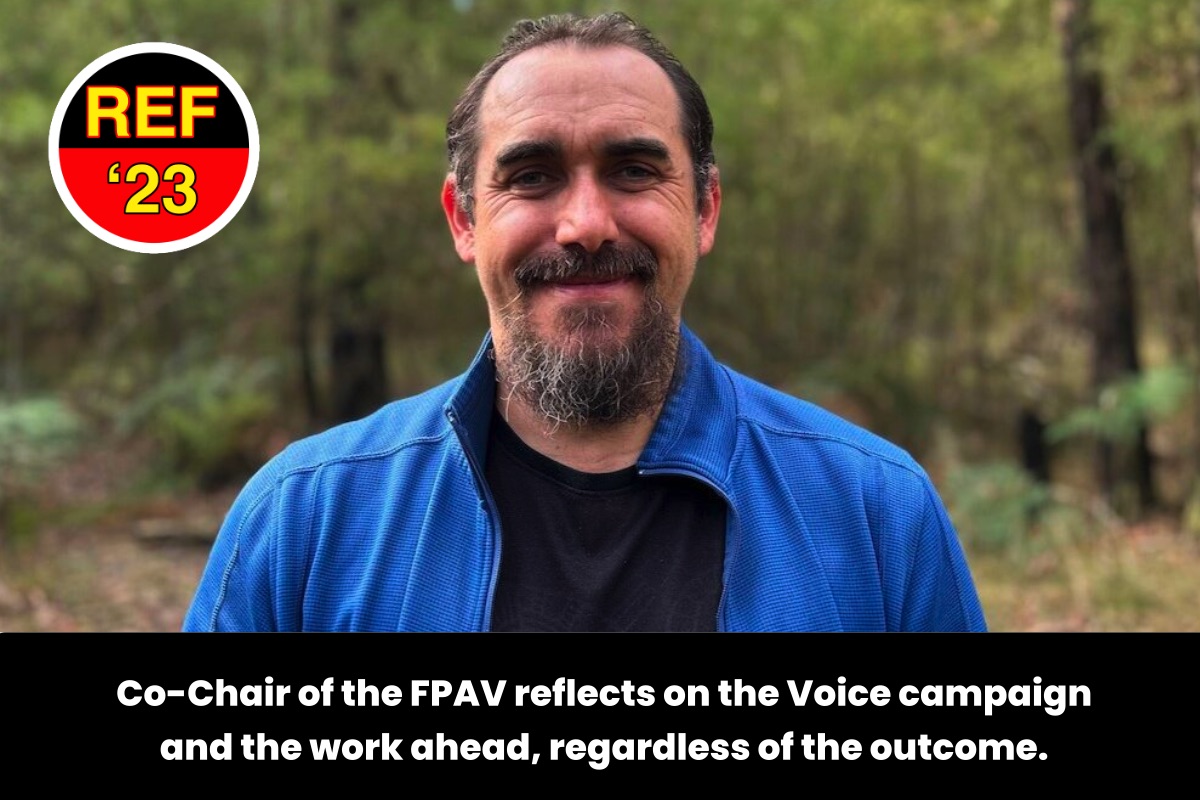
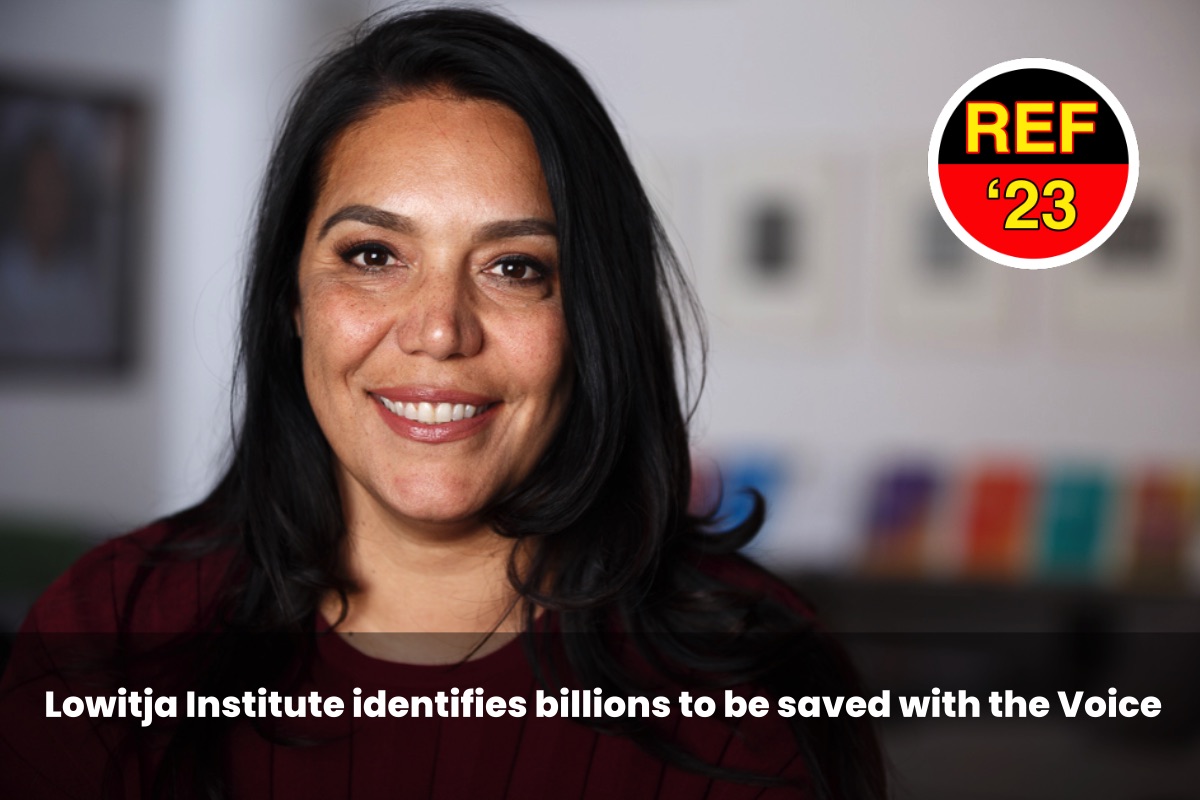
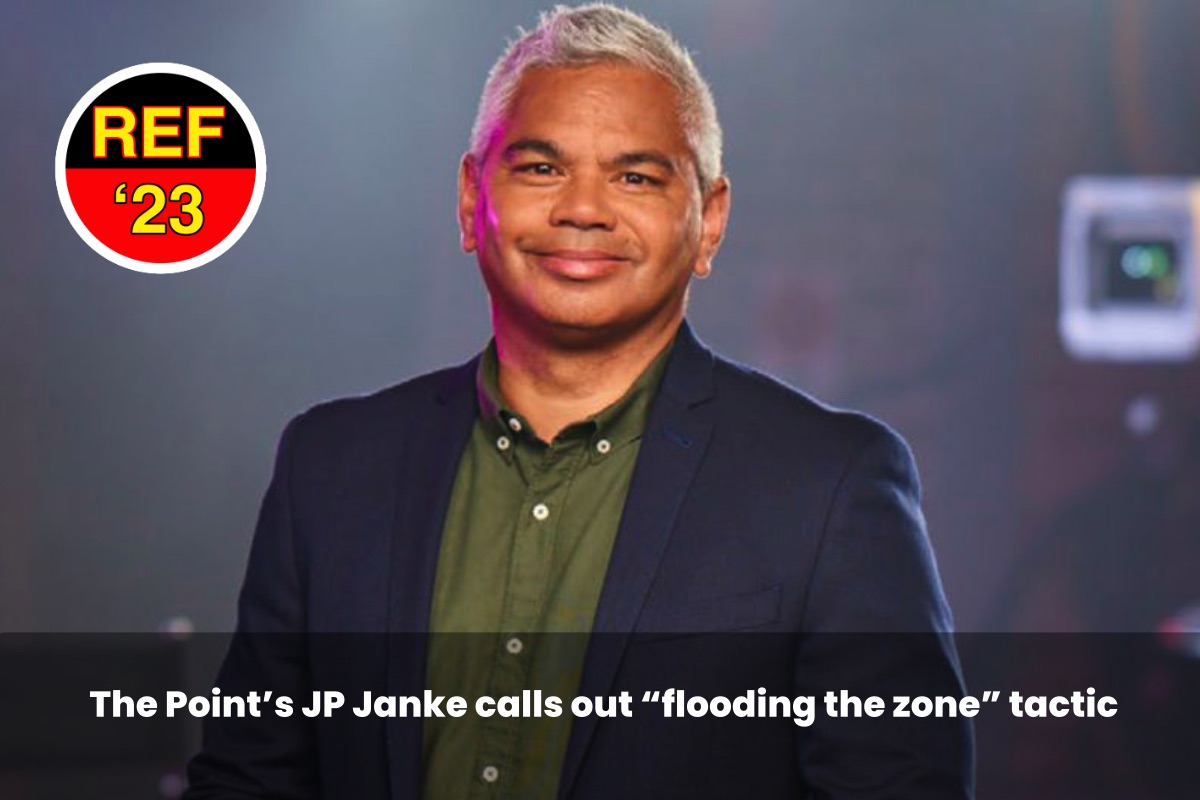
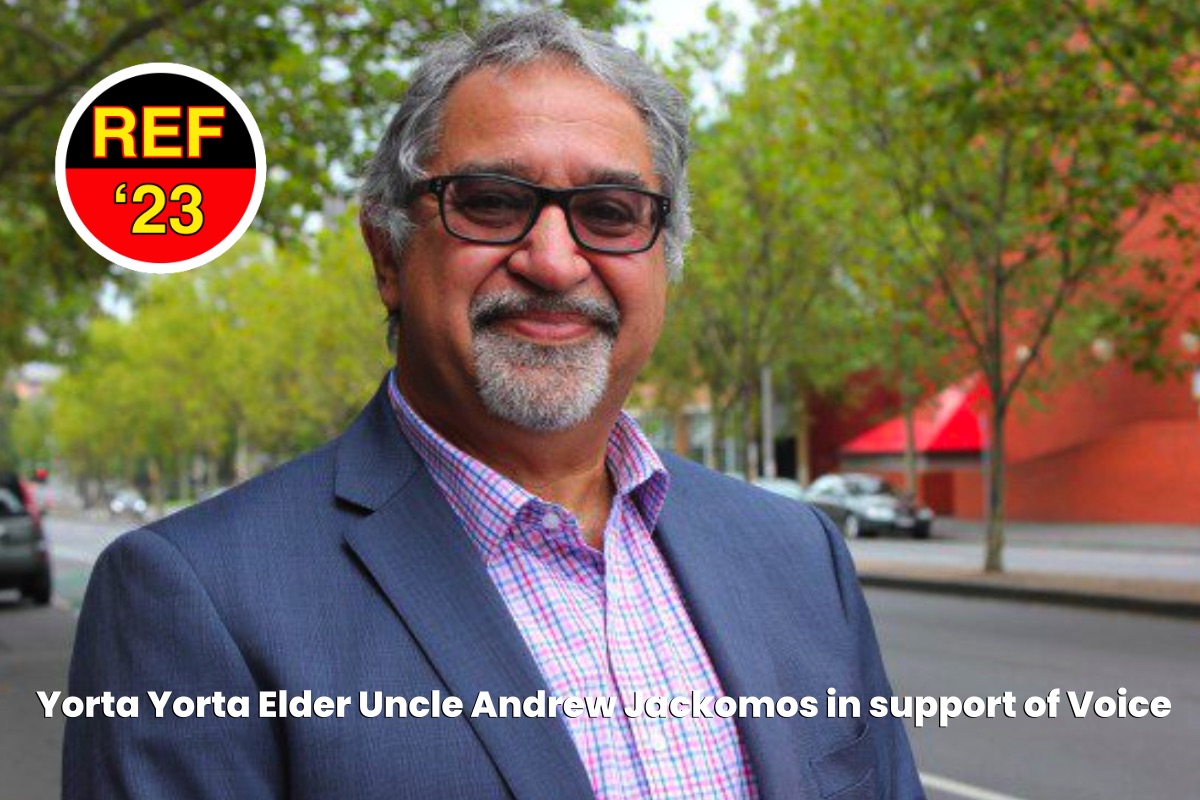
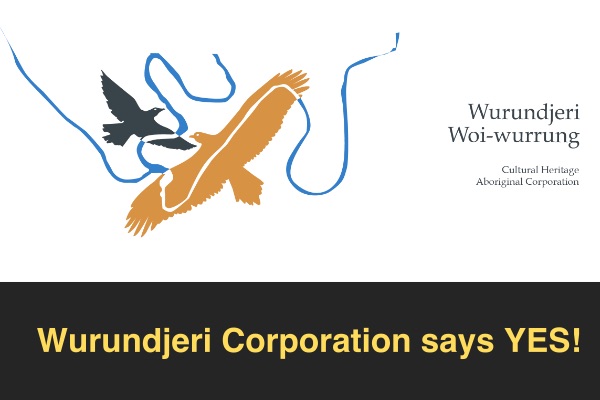

0 Comments